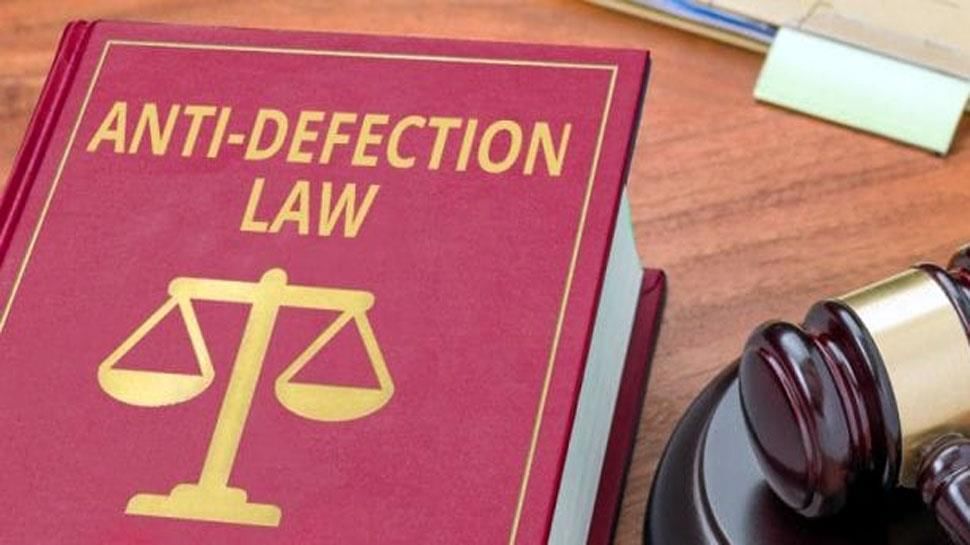The Hindu Editorial Analysis- 26th October 2024 | Current Affairs & Hindu Analysis: Daily, Weekly & Monthly - UPSC PDF Download

Sharpen the anti-defection law, strengthen democracy
Why in News?
The anti-defection law in India, a crucial instrument designed to maintain the stability of governments and uphold the integrity of democratic institutions, has been a subject of much debate since its inception. Introduced in 1985, the law sought to address the rampant party-switching by legislators, which frequently led to political instability. While it has been somewhat effective in curbing the practice of defection, various loopholes and implementation issues have surfaced over time, necessitating further reforms.
What is an Anti-Defection Law?
About the Anti-Defection Law
The Anti-Defection Law is a legal provision in India that aims to maintain stability in the political system by penalizing elected representatives for switching political parties. Here are the key points about this law:
Origin and Purpose
- The law was introduced as the Tenth Schedule of the Indian Constitution in 1985 through the 52nd Amendment Act.
- Its primary purpose is to discourage legislators from changing parties, thereby promoting stability in governments.
Historical Context
- The Anti-Defection Law was a response to the political instability witnessed after the 1967 general elections when several state governments were toppled due to party-hopping by Members of the Legislative Assembly (MLAs).
Provisions of the Law
- The law outlines the circumstances under which elected members, including Members of Parliament (MPs) and MLAs, can be disqualified from their positions due to defection to another political party.
- It aims to prevent the practice of 'floor crossing' where elected representatives switch allegiance to different parties, often for personal or political gain.
Provisions for Group MP/MLAs
The law allows a group of MPs or MLAs to join another political party without facing penalties for defection. It also does not penalize political parties for encouraging or accepting defecting legislators.
Defection and Merger Rules
- Under the 1985 Act, a defection by one-third of the elected members of a political party was considered a merger.
- The 91st Constitutional Amendment Act, 2003, changed this rule. Now, at least two-thirds of the members of a party must agree to a merger for it to be legally valid.
Disqualification and Elections
- Members disqualified under the law can run for elections from any political party for a seat in the same House.
Decision Authority and Judicial Review
- Decisions regarding disqualification due to defection are referred to the Chairman or the Speaker of the House.
- These decisions are subject to judicial review.
Timeframe for Decisions
- The law does not specify a timeframe within which the presiding officer must decide on a defection case.
Grounds for Defection
- Voluntary Give Up: When an elected member willingly resigns from their political party membership.
- Violation of Instructions: If a member votes or abstains from voting in a way that goes against the instructions of their political party or an authorized person, without prior permission.
- Elected Member: When an independently elected member joins a political party.
- Nominated Member: When a nominated member joins a political party after six months from their nomination.
How Does Defection Affect the Political System?
Subversion of Electoral Mandates
- Defection undermines the electoral mandates as legislators elected under one party often shift to another for personal benefits like ministerial positions or financial incentives.
Affects the Normal Functioning of Government
- The term “Aaya Ram, Gaya Ram” originated from the frequent defections by legislators in the 1960s.
- Defections contribute to government instability and disrupt administrative processes.
Promote Horse Trading
- Defections encourage horse-trading among legislators, which contradicts the principles of a democratic system.
Challenges with Anti-Defection Law
Paragraph 4 of the Law
- According to Paragraph 4 of the Anti-Defection Law, when a political party merges with another party, its members retain their seats.
- This merger requires the support of at least two-thirds of the party's members in the House. The law does not specify whether the merger applies at the national or regional level of the party.
Undermining Representative & Parliamentary Democracy
- Post-enactment of the Anti-Defection Law, MPs and MLAs are mandated to adhere strictly to the party's directives, stripping them of the autonomy to vote based on their judgment.
- The law disrupts the chain of accountability by making legislators primarily answerable to the political party rather than to their constituents.
Controversial Role of Speaker
- The law lacks clarity regarding the timeline for actions taken by the House Chairperson or Speaker in anti-defection cases.
- There are instances where cases linger for six months or even three years, with some being resolved only after the term concludes.
No Recognition of Split
- The 91st Constitutional Amendment Act(2003) introduced an exception for anti-defection rulings but does not acknowledge a 'split' within a legislative party.
- Instead, it recognizes a 'merger'.
Only Allows Wholesale Defection
- The law permits wholesale defection but prohibits retail defection.
- Amendments are necessary to address these loopholes.
- Concerns were raised that when a politician leaves a party, they should be allowed to do so but should not be granted a position in the new party.
Affects the Debate and Discussion
- The Anti-Defection Law has fostered a system of party dominance and numerical strength in Indian democracy, undermining the essence of debate and discussion.
- It blurs the line between dissent and defection, weakening parliamentary deliberations on legislative matters.
Way Forward
- Several experts recommend that the law should only apply to votes that affect the stability of the government. For example, this includes the approval of the annual budget or votes of no confidence.
- Different commissions, such as the National Commission to Review the Working of the Constitution (NCRWC), have suggested that the authority to disqualify a member should not rest with the Presiding Officer. Instead, it should be the President for Members of Parliament (MPs) or the Governor for Members of the Legislative Assembly (MLAs), based on advice from the Election Commission.
- In the judgment of Justice Verma in the case of Hollohan, it was stated that the Speaker's position relies on the ongoing support of the majority in the House. Therefore, the Speaker does not meet the criteria for being an independent authority in making decisions.
|
38 videos|5293 docs|1118 tests
|
FAQs on The Hindu Editorial Analysis- 26th October 2024 - Current Affairs & Hindu Analysis: Daily, Weekly & Monthly - UPSC
| 1. What is the anti-defection law in India? |  |
| 2. How does strengthening the anti-defection law contribute to democracy? |  |
| 3. What are the proposed provisions for group MP/MLAs in the context of the anti-defection law? |  |
| 4. What are the exceptions to the anti-defection law that allow MPs/MLAs to switch parties? |  |
| 5. Why is the anti-defection law considered important for political stability in India? |  |
















